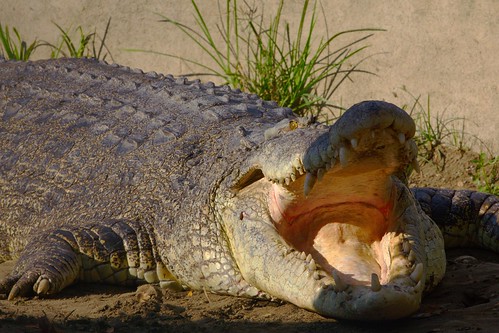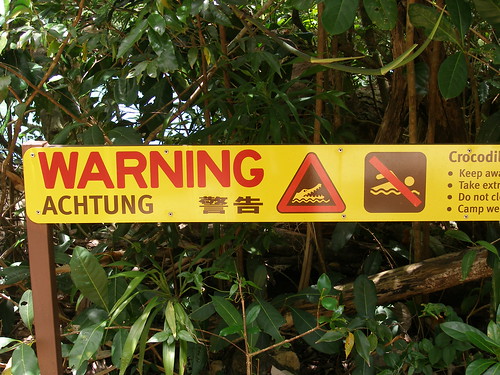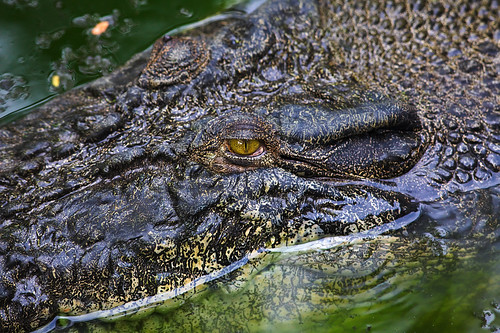Do Crocodiles get Drunk by Eating Drunks?
This is a research question which has been lumbering in the back of my mind for quite some time: What happens if a crocodile eats a drunk guy? Will the crocodile get drunk then?
Some background: In Australia, in the tropics, a lot of salt water crocodiles (Crocodylus porosus) live. These are mighty reptiles, growing up to six meters long. Sometimes they eat a human who is careless enough to venture too close to known crocodile-inhabited rivers.
These careless humans are sometimes drunk. Hence the carelessness.
For example: “July 2010: After being kicked out of the tavern drunk, a man climbs over the fence in the Broome crocodile park and jumps onto the back of a five metre croc. Bitten badly on the legs he was lucky to escape alive. Yes, if you try hard enough you can get a crocodile to attack you even during the cool dry season!”
The question now is: if a 500 kg crocodile (that’s not the max weight but a medium size) eats a 1.80 meter, 100 kg human full of alcohol, will it get drunk?
Let’s say the victim had a blood alcohol content of 0.4 (pretty smashed!). Then the crocodile, 5 times larger than the human, should peak at 0.08 percent blood alcohol. It would be a pretty tipsy reptile, at least.
Issues to consider:
- sometimes crocodiles kill their prey and only consume it a few days later, after it has softened. During that time some of the victim’s alcohol would be lost due to blood loss and diffusion into the river water.
- The alcohol degradation enzymes in animals are, so I believe, evolved to cope with ingested fermenting pant material. Hence non-plant-eaters like crocodiles will have less of them. A blood alcohol level of 0.08 might therefore be worse for a crocodile than a human.
The best way to test all of these assumptions would be to feed drunk pigs to a series of crocodiles, and then measure the reptiles’ blood alcohol content. Pigs are often used in alcoholism research. The procedures for getting pigs drunk are hence well established. I wonder if some institution will fund this research project?
In this age of whimpyness, getting a research ethics approval for this important project might not be easy. But that’s not a reason to give up!


